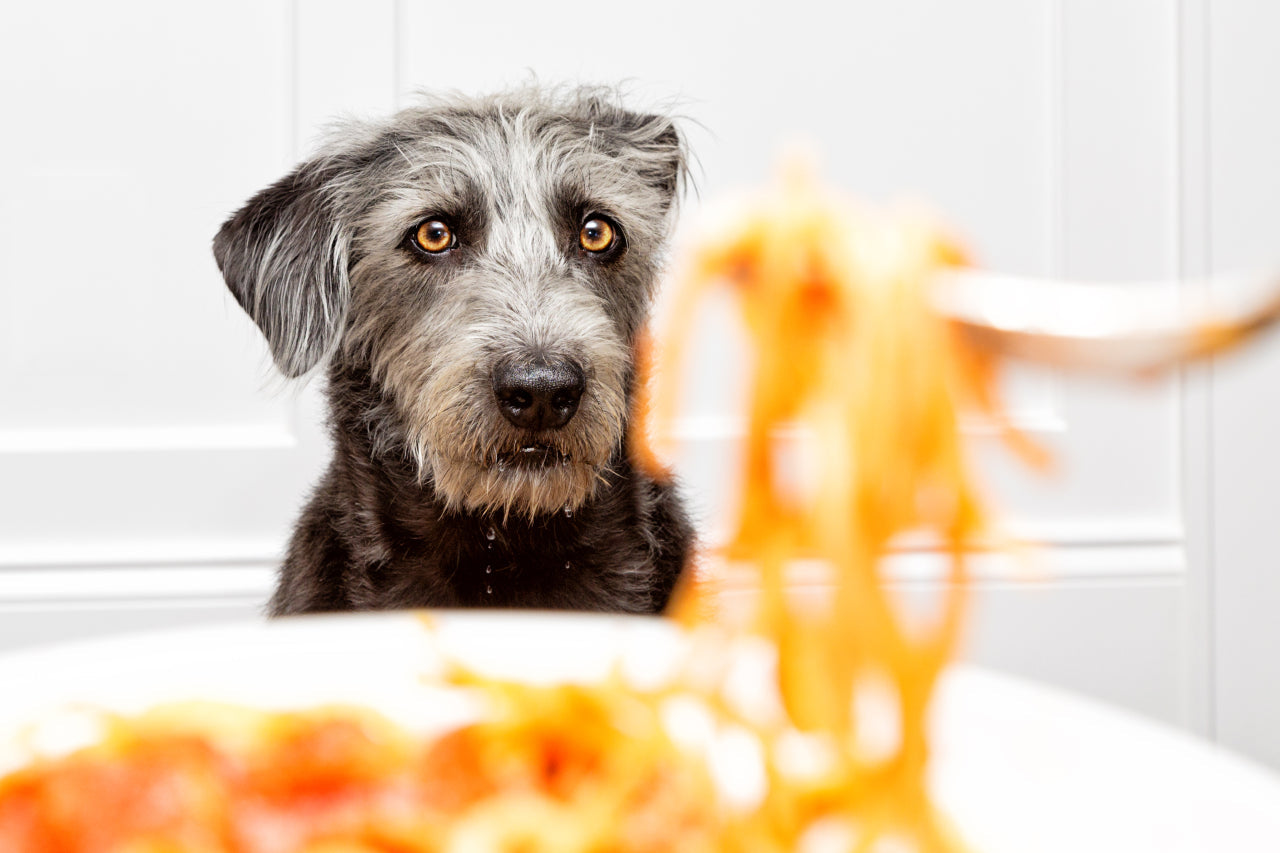
10 Foods Your Dog Should Never Eat
Written By: Tiffany Ruiz Dasilva, VMD, cVMA | Professional Services Veterinarian, Wild Earth
If you’re a dog owner, it’s important to be aware of the foods your dog cannot eat. It can be easy for dog parents to feed their dog snacks or scraps of food that they are eating, but many human foods are unhealthy, and even toxic, for dogs.
Below are some of the foods that your dog should never eat.
10 Foods That Dogs Can Not Eat
1. Chocolate
Chocolate can be dangerous for dogs because it contains theobromine and methylxanthines. Theobromine is a diuretic and can cause fast heart rate, tremors, seizures, and even death in dogs if they eat enough of it. Methylxanthines are stimulants that can also elevate a dog’s heart rate and cause seizures. It is best to keep chocolate out of reach from dogs because even small amounts can be dangerous for them.
2. Coffee or Caffeine
Coffee contains caffeine, which can be dangerous for the health of your dog. Dogs are much more sensitive to caffeine than humans are, and caffeine consumption can cause vomiting, hyperactivity, increased heartbeat, restlessness, pacing, excessive vocalization, and even seizures. Caffeine also raises blood pressure, which can cause cardiac arrhythmias, and in large amounts, caffeine can be fatal if no treatment is given.
3. Alcohol
Alcoholic beverages are dangerous for dogs, as alcohol can depress the central nervous system, and cause organ damage. If your dog ingests an alcoholic beverage then you should take them to the veterinarian immediately. Other sources of alcohol that your dog may consume include hand sanitizer, windshield wiper fluid, antifreeze and nail polish remover.
4. Grapes and Raisins
Grapes and raisins are bad for your dog because they can cause kidney failure. While a toxic dose is not established, and some dogs may tolerate a small dose, many dogs can develop poisoning even after only eating a few. It is best not to feed your dog any grapes or raisins, including cereals, granola, trail mix, etc that may contain these.
5. Onions or Garlic
Onions and garlic are dangerous because they cause red blood cell.0 damage in dogs. Red blood cells are necessary to carry oxygen throughout the body, and when red blood cells are destroyed, important organs do not get enough oxygen. Signs of anemia include increased heart and respiratory rate, weakness, kidney damage, collapse and even death.
6. Sugar or Sugary Snack
Any food or drink that is high in sugar can be dangerous for dogs. Foods or snacks that are high in sugar can lead to hyperactivity, obesity, high blood pressure, and other health issues for dogs.
7. Unhealthy Fats or Grease
Unhealthy fats can cause pancreatitis, heart disease, obesity, high blood pressure, and much more. This is why it is recommended that you never give your dog unhealthy fats or grease even if you think they will enjoy the taste.
8. Large Amounts of Dairy
Puppies can drink their mother’s milk when they are first born, but as they grow, the enzymes needed to digest dairy decrease, and dairy can make them sick. Some dogs can even be allergic to dairy. .
9. Yeast Dough
Yeast dough can be considered to be a rare cooking ingredient but it is possible that your dog could come in contact with it if you are baking. Yeast dough goes through a process of fermentation and if it is consumed raw, then it can cause alcohol poisoning.
10. Large Amounts of Salt
Salt or sodium is prevalent in many foods, and too much salt can lead to health issues for your dog. Excessive salt consumption can lead to dehydration, vomiting and diarrhea, tremors and seizures.
What Should You Do If Your Dog Eats Something They Shouldn't Eat?
Now that you have a better understanding of some of the foods that your dog should never eat, it is important to keep a close eye on what your dog is eating. It can be easy for a dog to sneak into the pantry or steal scraps from the dinner table which can be incredibly dangerous for their health.
Always make sure to do your research on which foods are safe for dogs and which are not. Whether you know or suspect that your dog has eaten something potentially toxic, it is important to monitor them closely.
Take note of what and how much they ate, and call your veterinarian or the Pet Poison Helpline immediately as they will be able to help you better understand what signs to look for.
Depending on what your dog ate, how much was consumed, and how your dog is acting, your veterinarian may either recommend that your dog be evaluated by an emergency room veterinarian, by them at their clinic, or they may just recommend that you monitor your dog’s behavior closely.
As you can see many of the foods that are toxic for dogs are not dangerous for humans, so it is important to do some research and make sure what you are feeding your pup is safe.



























